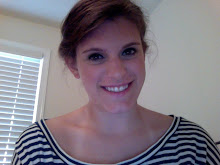The one thing I really liked about Pollock was his choice not to use the brush stroke as his modes of painting. To think that anyone created the abstract arts that he did without the use of a brush is quite amazing. But at his show, the audience tended to whisper and question what kind of art it was, if it was even art at all. His art didn't classify into cubism or any other category, it truly was a mash up of different styles.
Lee also asked Pollock questions like "who did you work under to learn art", suggesting that art requires a teacher to become perfected. And I definently think this is quite true, or why else would we have art class? Art teachers help shape our ideas to put them into an art form, but they should not be the end all of critic.
He also doesn't like accidents: he says he uses them to become part of the art, and then they are no longer accidents. Very interesting indeed.
In Bosquiat, we are revealed to the typical starving artist waiting for his big break. After he gets his big break, his friends no longer treat him the same way (the whole 'stardom' syndrome kicks in), and the wave of personal questions ('you dated madonna?') begin to wave in. "They say I’m killing myself, but then when I clean up they say my art’s dead": a quote of truth, since people, namely the public, always want more or less, but whatever you are at the moment tends to be too extreme for them. It's like nothing will make them happy.
Friday, February 20, 2009
Subscribe to:
Post Comments (Atom)

No comments:
Post a Comment